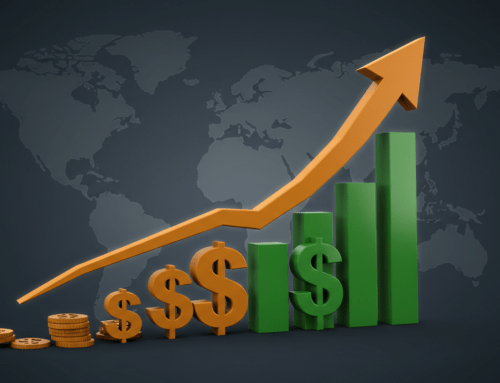SaaS Valuation: Complete Guide to Software Company Value
A SaaS valuation is the process of determining the fair market value of a software-as-a-service company by analyzing its financial performance, growth metrics, market position, and future earning potential. This comprehensive assessment examines recurring revenue streams, customer retention rates, and scalability factors unique to subscription-based business models. Professional SaaS valuations typically employ three primary approaches: revenue multiples, EBITDA analysis, and seller’s discretionary earnings evaluation.
Understanding your SaaS company’s true value becomes critical when considering strategic transitions, securing venture financing, or planning exit strategies. Sofer Advisors specializes in delivering defendable valuations for software companies, helping founders and investors make informed decisions about growth trajectory and capital strategy. With subscription-based models generating predictable cash flows, accurate valuation requires deep expertise in recurring revenue analysis and customer lifetime value calculations.
What is SaaS valuation methodology?
SaaS valuation methodology combines traditional business appraisal techniques with metrics specific to software-as-a-service companies. The process evaluates recurring revenue patterns, customer acquisition costs, churn rates, and monthly recurring revenue growth to establish fair market value. Professional valuators examine subscription models, customer concentration risk, and technology scalability when determining enterprise value.
The three primary valuation approaches include revenue-based multiples, EBITDA analysis, and seller’s discretionary earnings calculations. Revenue multiples typically range from 2x to 10x annual recurring revenue, depending on growth rates, profit margins, and market conditions. Companies demonstrating strong customer retention and consistent growth command higher multiples in the marketplace.
Core SaaS Valuation Methods:
1. Revenue Multiple Method – Applies industry multiples to annual recurring revenue based on growth rates and market comparables
2. EBITDA Analysis – Evaluates earnings before interest, taxes, depreciation, and amortization for profitability assessment
3. Seller’s Discretionary Earnings – Calculates owner benefits including salary, perks, and discretionary expenses for smaller SaaS companies
4. Discounted Cash Flow – Projects future cash flows and discounts to present value using appropriate risk factors
5. Asset-Based Approach – Values tangible and intangible assets including customer relationships and proprietary technology
Market data shows SaaS companies with annual recurring revenue exceeding $10 million often receive higher valuation multiples due to reduced risk and proven scalability. Financial reporting standards require regular impairment testing for SaaS companies, making professional valuations essential for compliance and stakeholder confidence.
Why does SaaS valuation matter for businesses?
SaaS valuation provides essential insights for strategic planning, investor relations, and ownership transitions in the rapidly evolving software market. Accurate business valuations help founders understand their company’s current worth while identifying value drivers that can enhance future exit opportunities. Professional appraisals support critical decisions about equity-based compensation, partnership agreements, and capital raises.
Establishing true value becomes particularly important when SaaS companies pursue venture financing or consider strategic partnerships. Investment bankers and private equity firms rely on rigorous independent valuations to structure fair deals and minimize risk. Estate planning for SaaS founders requires specialized knowledge of recurring revenue models and technology asset valuation.
Companies pursuing mergers and acquisitions benefit from objective analysis that helps negotiate favorable terms and closing conditions. Tax compliance situations, including 409A valuations and estate & gift tax transfers, demand defendable appraisals that withstand regulatory scrutiny. Sofer Advisors delivers comprehensive SaaS valuations that address these diverse business needs with measurable impact.
Conflict resolution between shareholders often centers on disagreements about company worth, making neutral third-party valuations crucial for dispute settlement. Professional valuations also support financial reporting requirements, particularly for companies preparing for IPO or managing stock option programs. Understanding market position relative to comparable companies helps leadership teams make informed strategic decisions.
How does the Rule of 40 impact SaaS valuation?
The Rule of 40 states that a SaaS company’s revenue growth rate plus its profit margin should exceed 40% to demonstrate balanced performance between growth and profitability. This metric has gained widespread adoption among investors as a key performance indicator for evaluating SaaS company health and market position. Companies exceeding the 40% threshold typically command higher valuation multiples due to their demonstrated ability to scale efficiently.
Profitable SaaS companies with slower growth can still meet the Rule of 40 by maintaining strong margins, while high-growth companies may sacrifice short-term profitability to capture market share. Investors use this benchmark to compare companies across different growth stages and market segments. The rule helps identify companies that balance aggressive expansion with sustainable unit economics.
Valuation professionals incorporate Rule of 40 performance when determining appropriate revenue multiples and risk adjustments. Companies consistently above 40% demonstrate operational discipline and often receive premium valuations from strategic buyers. Market conditions and competitive dynamics influence how investors weight growth versus profitability in their evaluation criteria.
Business owners should track their Rule of 40 performance quarterly to understand their competitive position and identify areas for improvement. Strategic initiatives that enhance customer retention, reduce acquisition costs, or improve pricing models can positively impact both components of the rule. This metric serves as a valuable benchmarking tool for management teams focused on value creation.
What are common SaaS valuation multiples?
SaaS valuation multiples vary significantly based on company size, growth rate, profitability, and market conditions. Revenue multiples typically range from 1x to 12x annual recurring revenue, with high-growth companies commanding premium valuations. EBITDA multiples generally fall between 10x to 25x for profitable SaaS businesses, depending on market segment and competitive positioning.
Valuation Multiple Ranges by Company Stage:
Early Stage (Under $1M ARR):
– Revenue Multiple: 1x – 3x ARR
– Growth Rate: 100%+ annually
– Key Factors: Product-market fit, customer validation
Growth Stage ($1M – $10M ARR):
– Revenue Multiple: 3x – 8x ARR
– Growth Rate: 50% – 100% annually
– Key Factors: Scalability, customer retention
Scale Stage ($10M+ ARR):
– Revenue Multiple: 5x – 12x ARR
– Growth Rate: 25% – 75% annually
– Key Factors: Market leadership, profitability
Public SaaS companies often trade at higher multiples than private companies due to liquidity premiums and market access. Growth rates above 40% annually typically support premium valuations, while companies below 20% growth face multiple compression. Customer concentration, churn rates, and competitive moat strength significantly influence multiple selection.
Market conditions create cyclical variations in valuation multiples, with periods of expansion and contraction affecting all company stages. Purchase price allocation engagements help acquirers properly allocate deal value across tangible and intangible assets. Professional valuators maintain databases of comparable transactions to ensure market-appropriate multiple selection.
How do recurring revenue metrics affect valuation?
Recurring revenue metrics form the foundation of SaaS valuation analysis, with monthly recurring revenue and annual recurring revenue serving as primary value drivers. Predictable subscription income reduces business risk and supports higher valuation multiples compared to traditional one-time sales models. Customer lifetime value calculations help determine the long-term worth of subscriber relationships and guide strategic decision-making.
Net revenue retention rates above 110% indicate strong customer expansion and typically correlate with premium valuations. Companies demonstrating downward churn through upselling and cross-selling create compound growth effects that investors value highly. Customer acquisition cost payback periods under 12 months signal efficient growth strategies and sustainable unit economics.
Critical Recurring Revenue Metrics:
– [ ] Monthly Recurring Revenue (MRR) growth rate and trends
– [ ] Annual Recurring Revenue (ARR) stability and predictability
– [ ] Net Revenue Retention above 100% indicating customer expansion
– [ ] Gross Revenue Retention measuring customer churn impact
– [ ] Customer Lifetime Value to Customer Acquisition Cost ratios
– [ ] Average Revenue Per User (ARPU) trends and pricing power
– [ ] Churn rate analysis by customer segment and cohort
Subscription model predictability enables more accurate cash flow projections and supports debt financing opportunities. Venture capitalists focus heavily on recurring revenue quality when evaluating investment opportunities and determining valuation ranges. Companies with diverse revenue streams across multiple customer segments typically receive higher valuations due to reduced concentration risk.
Financial reporting requirements demand careful tracking of deferred revenue and contract assets to ensure compliance with revenue recognition standards. Professional valuations incorporate detailed analysis of subscription metrics to properly assess business risk and growth potential. Understanding these metrics helps management teams identify value enhancement opportunities and optimize pricing strategies.
Which factors drive SaaS company valuations higher?
Several key factors consistently drive SaaS company valuations higher, with sustainable growth and strong unit economics leading the list. Companies demonstrating predictable revenue growth above 30% annually while maintaining healthy profit margins command premium multiples from investors and strategic buyers. Market leadership positions in growing software categories create competitive advantages that support higher valuations.
Customer diversification reduces concentration risk and appeals to buyers seeking stable, predictable cash flows. SaaS companies serving enterprise customers often receive higher valuations due to longer contract terms and reduced churn rates. Proprietary technology and intellectual property assets provide defensive moats that justify premium pricing.
Primary Value Drivers:
1. Scalable Technology Platform – Architecture supporting rapid customer growth without proportional cost increases
2. Strong Management Team – Experienced leadership with proven track records in scaling software companies
3. Market Opportunity Size – Large addressable markets with room for significant expansion
4. Customer Stickiness – High switching costs and deep product integration creating retention advantages
5. Financial Performance – Consistent revenue growth paired with improving profit margins over time
Strategic partnerships with major technology providers can enhance market reach and validation, supporting higher valuation multiples. Companies with international expansion capabilities access broader markets and diversified revenue streams. Successful track records in adjacent market penetration demonstrate management execution capabilities.
Sofer Advisors evaluates these factors comprehensively when conducting SaaS valuations for merger and acquisition transactions. Data security certifications and compliance frameworks become increasingly important as enterprise customers demand robust governance. Companies with strong environmental, social, and governance practices often receive valuation premiums from impact-focused investors.
When should SaaS companies get professional valuations?
SaaS companies should obtain professional valuations during key business milestones, regulatory compliance requirements, and strategic decision points. Funding rounds, whether venture capital or debt financing, require independent valuations to establish fair market value and support investor confidence. Estate planning for founders and key stakeholders demands accurate appraisals for tax compliance and succession strategy development.
Mergers and acquisitions activity necessitates comprehensive valuations to guide negotiation strategies and ensure fair transaction pricing. Stock option grant programs require 409A valuations to comply with tax regulations and avoid penalties for employees and the company. Partnership buy-in or buy-out situations benefit from neutral third-party assessments to maintain stakeholder relationships.
Optimal Timing for Professional Valuations:
Quarterly Reviews:
– Board reporting and investor updates
– Performance benchmarking against industry peers
– Strategic planning and resource allocation
Annual Requirements:
– Financial reporting and audit preparation
– Tax compliance and estate planning updates
– Stock option program maintenance
Transaction-Driven Events:
– Fundraising preparation and investor presentations
– Merger and acquisition due diligence
– Partnership negotiations and joint ventures
Conflict resolution between shareholders or partners requires objective analysis from qualified professionals. Insurance claims involving business interruption or key person coverage depend on accurate valuations to support claim amounts. Divorce proceedings affecting business-owning spouses need independent appraisals for equitable asset division.
Market volatility periods create opportunities for strategic transactions, making current valuations essential for timing decisions. Companies considering initial public offerings benefit from understanding their private market value before engaging investment bankers. Regular valuation updates help management teams track progress toward exit strategy goals and identify value enhancement opportunities.
Frequently Asked Questions (FAQ)
What is the average SaaS company valuation multiple?
The average SaaS company valuation multiple ranges from 3x to 8x annual recurring revenue, depending on growth rate, profitability, and market conditions. High-growth companies exceeding 50% annual growth often command multiples above 8x, while mature companies with slower growth typically receive 2x to 5x revenue multiples. Market volatility and investor sentiment significantly influence multiple ranges across different time periods.
How do investors calculate SaaS company worth?
Investors calculate SaaS company worth by analyzing recurring revenue quality, customer retention metrics, and growth sustainability alongside traditional financial performance measures. They examine monthly recurring revenue trends, net revenue retention rates, and customer lifetime value ratios to assess business model strength. Professional due diligence includes market analysis, competitive positioning, and management team evaluation to determine fair market value.
What makes SaaS valuations different from traditional businesses?
SaaS valuations differ from traditional businesses because they focus heavily on recurring revenue predictability, customer retention rates, and scalability metrics rather than historical earnings alone. Subscription models create deferred revenue recognition complexities and require specialized knowledge of software industry dynamics. Technology assets, intellectual property, and customer relationships receive greater valuation emphasis in SaaS companies compared to asset-heavy traditional businesses.
When should SaaS startups get 409A valuations?
SaaS startups should obtain 409A valuations concurrent with issuing stock options and update them annually every 12 months for meeting IRS safe harbor rules or after significant corporate events like funding rounds. Companies must refresh 409A appraisals following material changes in business performance, market conditions, or corporate structure to maintain tax compliance. Professional valuations protect both the company and employees from IRS penalties related to stock option pricing.
How does customer churn impact SaaS valuations?
Customer churn directly impacts SaaS valuations by affecting revenue predictability and growth sustainability, with higher churn rates leading to lower valuation multiples. Companies maintaining annual churn below 10% typically receive premium valuations due to demonstrated customer satisfaction and product-market fit. Churn analysis by customer segment and cohort helps valuators assess long-term revenue stability and competitive positioning.
What financial metrics matter most in SaaS valuations?
The financial metrics that matter most in SaaS valuations include annual recurring revenue growth, net revenue retention, customer acquisition cost payback periods, and gross margins. Rule of 40 performance combining growth and profitability provides key insights into operational efficiency and market positioning. Cash burn rates, runway calculations, and path to profitability timelines influence risk assessments and valuation ranges.
How do SaaS valuations compare across different industries?
SaaS valuations vary significantly across industries, with enterprise software companies typically commanding higher multiples than consumer-focused applications due to stronger retention and pricing power. Healthcare and financial services SaaS companies often receive premium valuations due to regulatory barriers and switching costs. Market size, competitive dynamics, and growth potential influence industry-specific valuation ranges and investor preferences.
What role does intellectual property play in SaaS valuations?
Intellectual property plays a crucial role in SaaS valuations by providing competitive differentiation and defensive moats that support premium pricing and customer retention. Patents, trademarks, and proprietary technology assets require separate valuation analysis during purchase price allocation engagements. Strong intellectual property portfolios reduce competitive risk and enhance strategic value for potential acquirers seeking market advantages.
How do market conditions affect SaaS company valuations?
Market conditions significantly affect SaaS company valuations through changes in investor risk appetite, capital availability, and competitive dynamics across technology sectors. Economic downturns typically compress valuation multiples as investors demand higher returns and focus on profitability over growth. Interest rate changes influence discount rates used in discounted cash flow analyses and affect relative attractiveness of growth investments.
What documentation is needed for professional SaaS valuations?
Professional SaaS valuations require comprehensive financial statements, customer analysis, subscription metrics, and operational data covering at least three to five years of historical performance. Key documents include monthly recurring revenue reports, customer cohort analysis, churn rate calculations, and management projections. Technology infrastructure assessments, intellectual property portfolios, and competitive analysis materials support thorough valuation analysis and defendable conclusions.
How long does a SaaS valuation process typically take?
A comprehensive SaaS valuation process typically takes 3-8 weeks depending on company complexity, data availability, and engagement scope requirements. Initial discovery and data collection phases consume 1-2 weeks, followed by financial analysis and market research requiring 2-3 weeks. Final report preparation and quality review processes add another week to ensure accuracy and compliance with professional standards.
What qualifications should SaaS valuation professionals have?
SaaS valuation professionals should hold recognized credentials such as Accredited Senior Appraiser (ASA), Accredited in Business Valuation (ABV), or Certified Valuation Analyst (CVA) designations. Technology industry experience and software company specialization provide essential context for understanding SaaS business models and market dynamics. Professional qualifications ensure adherence to valuation standards and regulatory requirements for tax compliance and financial reporting purposes.
Conclusion
SaaS valuation represents a critical component of successful technology transactions, requiring specialized expertise to navigate complex recurring revenue models and industry-specific compliance requirements. The process directly impacts investment decisions, strategic planning, tax consequences, and stakeholder confidence in company performance. With over 15,000 SaaS companies operating globally and evolving market conditions creating valuation volatility, businesses cannot afford inaccurate assessments that lead to missed opportunities or unfavorable transaction terms.
Sofer Advisors delivers comprehensive SaaS valuation services backed by proven methodologies and extensive technology industry transaction data. Our systematic approach ensures accurate fair value measurements while meeting critical business deadlines and regulatory requirements. Contact us today to discuss your SaaS valuation needs and understand how proper assessment supports your strategic objectives and maximizes enterprise value.
This article provides general information for educational purposes only and does not constitute legal, tax, financial, or professional advice – consult qualified professionals regarding your specific circumstances.







